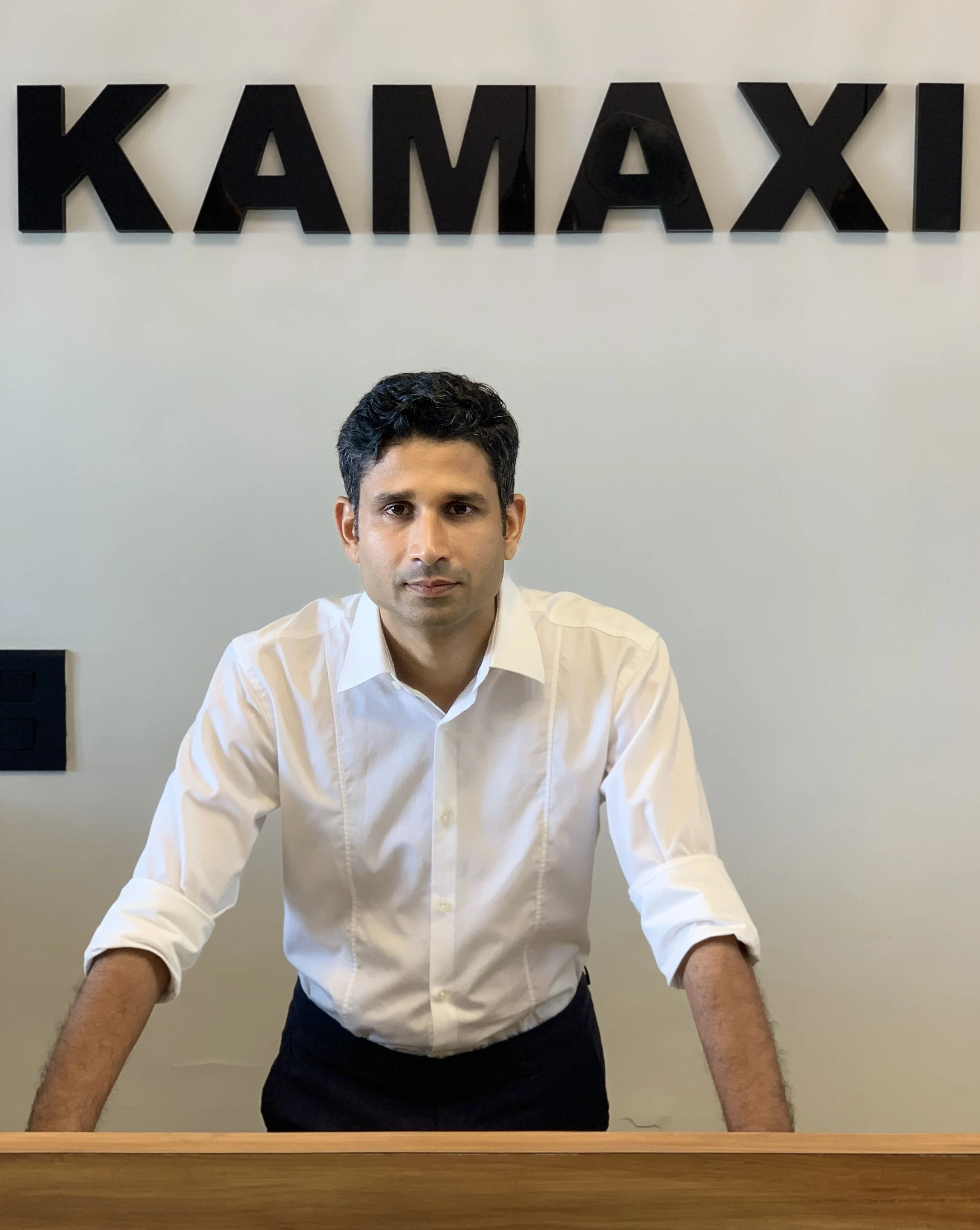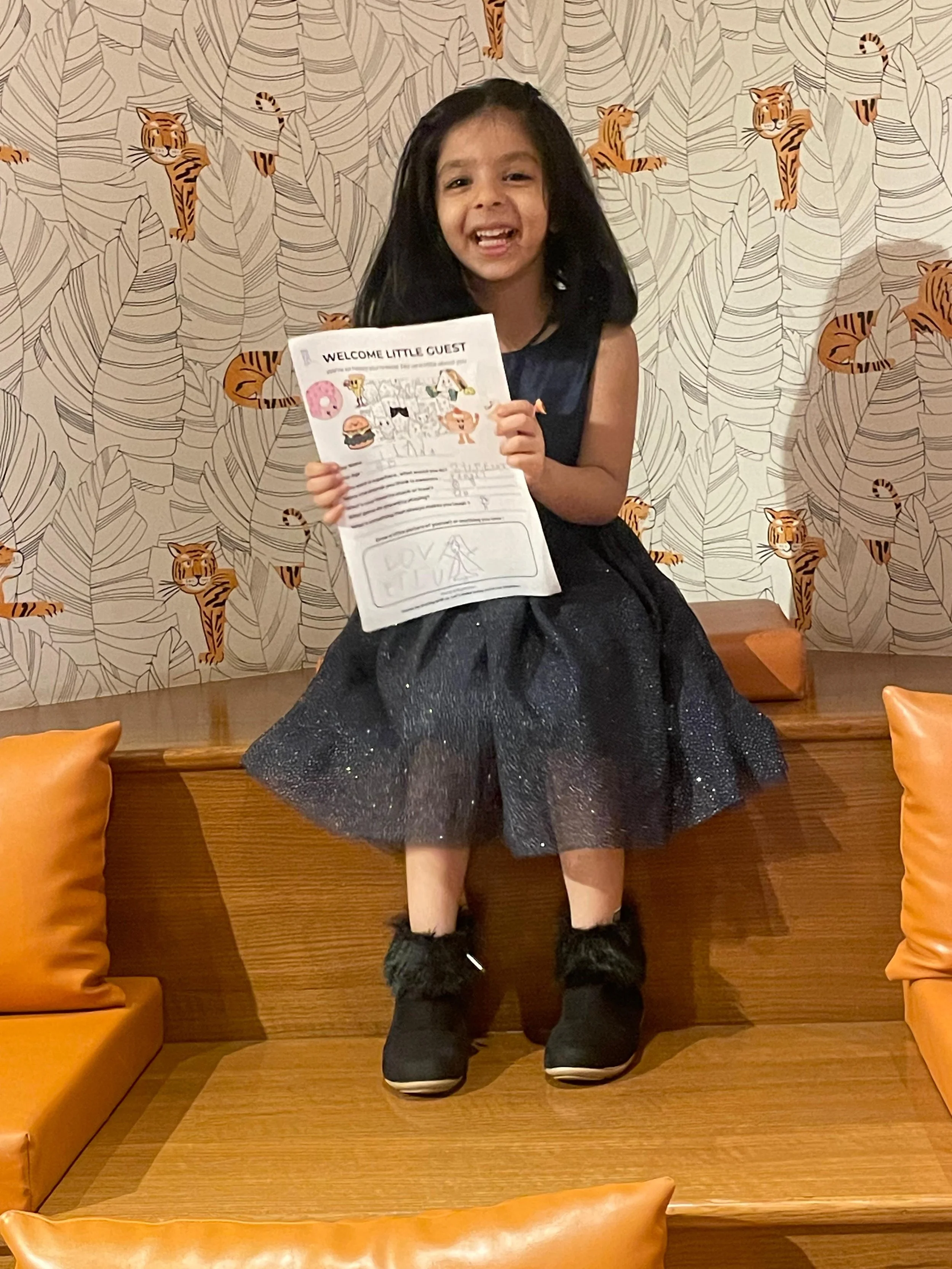Exclusive Interview | Parixit Pai Fondekar, founder of the Goa-based Kamaxi Group
/“At Kamaxi Group, our mission is to make quality education and career development accessible to all. We are committed to excellence, delivering world-class training that meets industry standards”
Kamaxi Group has grown into a multifaceted organisation serving various sectors. What inspired you to establish Kamaxi Group and how has the journey been since its inception?
Kamaxi Group was founded in 1997 with the vision of addressing the growing need for skilled manpower in the hospitality industry. The idea emerged from recognising the demand for well-trained professionals and existing gaps in education and training. Since then, the Kamaxi Group has embarked on a journey of continuous learning and growth. Initially started as a small operation, it quickly expanded into cruise line staffing (Kamaxi Overseas Consultants), culinary education (Kamaxi College of Culinary Arts), maritime training (Kamaxi Maritime Academy) and incubation (FIERCE Kitchens). Challenges, including evolving standards and new technologies, have strengthened Kamaxi Group’s commitment to innovation and quality.
Today, the Kamaxi Group shapes the careers of thousands of young Indians, equipping them with skills to thrive globally.
With Kamaxi Overseas Consultants, Kamaxi Skills and other initiatives, your organisation focuses on empowering individuals through training and education. What core values drive this mission?
At Kamaxi Group, our mission is to make quality education and career development accessible to all. We are committed to excellence, delivering world-class training that meets industry standards. Integrity guides our practices with transparency in education and recruitment. Our focus on empowerment equips individuals with the skills and confidence to succeed. Innovation drives us to continuously improve our programmes, while collaboration with industry leaders connects skilled professionals to available opportunities. Responsibility defines our commitment to ethical, sustainable practices, shaping the future workforce.
Kamaxi College of Culinary Arts and FIERCE Kitchens focus on the culinary industry. How do you see the role of culinary education evolving, especially in India?
Culinary education in India is evolving to keep pace with the expanding food and hospitality industry. Key trends include integrating global techniques, enabling Indian chefs to compete internationally, especially in luxury hotels and cruise lines.
Sustainability is gaining traction with eco-friendly practices like farm-to-table concepts. Specialisation is on the rise, with niche fields such as pastry arts and molecular gastronomy. Technology is enhancing training, using virtual classes and advanced equipment. Additionally, entrepreneurship and cultural exchange programmes are helping chefs promote Indian cuisine globally while embracing diverse culinary traditions.
Kamaxi Maritime Academy offers specialized training for the maritime sector. How does your organisation adapt to the changing needs of this industry and what are the key skills that you emphasize for maritime professionals?
The newly established Kamaxi Maritime Academy (KMA) in Verna, South Goa, is committed to staying ahead of the evolving maritime sector by continuously adapting and innovating it’s training programs. Catering to both onshore and offshore roles, KMA ensures its curriculum meets global standards, offering entry-level training and internationally recognised certificates. We adhere to the International Maritime Organization and Standards of Training, Certification and Watchkeeping (STCW), preparing students for the global job market. Collaborating with industry leaders, we emphasise essential skills such as safety, leadership, adaptability and customer service, ensuring students are equipped for real-world demands.
As a hiring partner for luxurious cruise lines, how do you ensure that Kamaxi Overseas Consultants graduates meet the high standards expected by international employers?
As a hiring partner for luxury cruise lines, Kamaxi Overseas Consultants ensures high standards for its graduates through rigorous training and industry partnerships.
The curriculum, developed with leading cruise lines, covers culinary arts, hospitality management and soft skills like customer service and cultural competency. Hands-on training in state-of-the-art facilities prepares students for real-world challenges.
Programs align with international maritime and hospitality standards, including STCW guidelines and offer globally recognised certifications. Students gain practical experience through internships with hotel partners, while safety and compliance are emphasised through comprehensive maritime training.
Kamaxi Group places a strong emphasis on skill development, particularly with NSDC and THSC partnerships. How do these collaborations enhance the employability of your trainees?
Kamaxi Group’s collaborations with the National Skill Development Corporation (NSDC) and the Tourism and Hospitality Skill Council (THSC) enhance trainee employability by bridging industry expectations and workforce readiness. These partnerships align our training programs with national and international standards, equipping graduates with globally recognised credentials.
Through NSDC and THSC, we provide structured skill development backed by government frameworks, offering specialised training and upskilling opportunities that keep pace with industry trends.
Financial support, including government-backed loans and scholarships, makes high- quality training accessible to a broader range of students, especially from underprivileged backgrounds. Incentives for employers to hire graduates from these programs further boost job prospects. By integrating these elements, Kamaxi Group ensures our trainees acquire relevant skills, gain valuable certifications and receive strong job placement support for success in the hospitality, tourism and maritime industries.
With a focus on fostering a culture of mutual respect and empowerment, how do you maintain these values across your various business and training initiatives?
Expanding Kamaxi Group’s services into culinary incubation and maritime training has been rewarding yet challenging. Understanding sector-specific needs was crucial; for culinary incubation, we focused on creativity and market trends by partnering with seasoned chefs and entrepreneurs to offer practical business insights. In maritime training, we ensured compliance with international safety standards through collaborations with maritime organisations and investments in advanced simulation equipment.
Establishing industry credibility involved leveraging our hospitality reputation and forming strategic partnerships with experts. Securing resources and infrastructure required significant investment, managed through financial partnerships and scalable development. Attracting and retaining top talent was addressed by creating a collaborative work environment with competitive compensation. Navigating cultural and regulatory differences involved developing culturally sensitive programs and aligning with global standards, particularly in maritime training. Building awareness and enrollment was achieved through targeted marketing campaigns and showcasing student success stories.
What challenges have you faced while expanding Kamaxi Group’s services into new sectors like culinary incubation and maritime training and how have you overcome them?
Expanding Kamaxi Group’s services into culinary incubation and maritime training has been both rewarding and challenging. Understanding sector-specific needs was crucial; for culinary incubation, we partnered with seasoned chefs and entrepreneurs to focus on creativity and market trends. In maritime training, we ensured compliance with international safety standards through collaborations with maritime organisations and investments in advanced simulation equipment.
Establishing industry credibility involved leveraging our hospitality reputation and forming strategic partnerships with experts. Securing resources required significant investment, managed through financial partnerships and scalable development. Attracting and retaining top talent was achieved by creating a collaborative work environment with competitive compensation. Navigating cultural differences involved developing sensitive programs and aligning with global standards, particularly in maritime training.
Building awareness and enrollment was accomplished through targeted marketing campaigns and showcasing student success stories.
How does Kamaxi Group balance its commercial interests with its social initiatives, ensuring that the focus remains on people and their growth?
Kamaxi Group strikes a careful balance between commercial interests and social initiatives through a people-first approach that prioritises empowerment, skill development and community impact. We ensure our core values of education and empowerment guide our operations, aligning with national goals through partnerships like NSDC.
Our social enterprise model links commercial success to social impact, reinvesting in communities through scholarships and employability-focused programs. Industry partnerships are purpose-driven, maintaining ethical practices and creating real-world opportunities. Innovation supports social good with accessible technology and entrepreneurial support. Expansion is carried out with local impact in mind, generating jobs and fostering community development. Long-term accountability is ensured through impact reporting and ongoing support, while CSR programs and internal growth opportunities reinforce our commitment to positive, lasting change.
Looking ahead, what are your long-term goals for Kamaxi and how do you envision the organization contributing to India’s broader socio-economic development?
Looking ahead, Kamaxi Group has set ambitious goals that align with both organisational growth and India's broader socio-economic development. The organisation plans to expand its training programs nationwide, reaching underserved regions and enhancing employability in hospitality, maritime and culinary arts.
Kamaxi Group aims to bolster India’s position as a global hub for skilled workers by providing world-class training that prepares individuals for international careers.
Initiatives like FIERCE Kitchens will support entrepreneurial growth and job creation, aligning with India’s Atmanirbhar Bharat vision. Technology will be integrated into education to make training more accessible and reduce the digital divide.
Strengthening industry partnerships will ensure alignment with evolving needs, while a focus on gender equality and social inclusion will empower underrepresented groups. Kamaxi Group will also integrate sustainability into its practices, enhance quality assurance for global recognition and collaborate with government and educational institutions to support national skill development initiatives, ensuring we become pivotal players in India’s tourism and hospitality industries.






